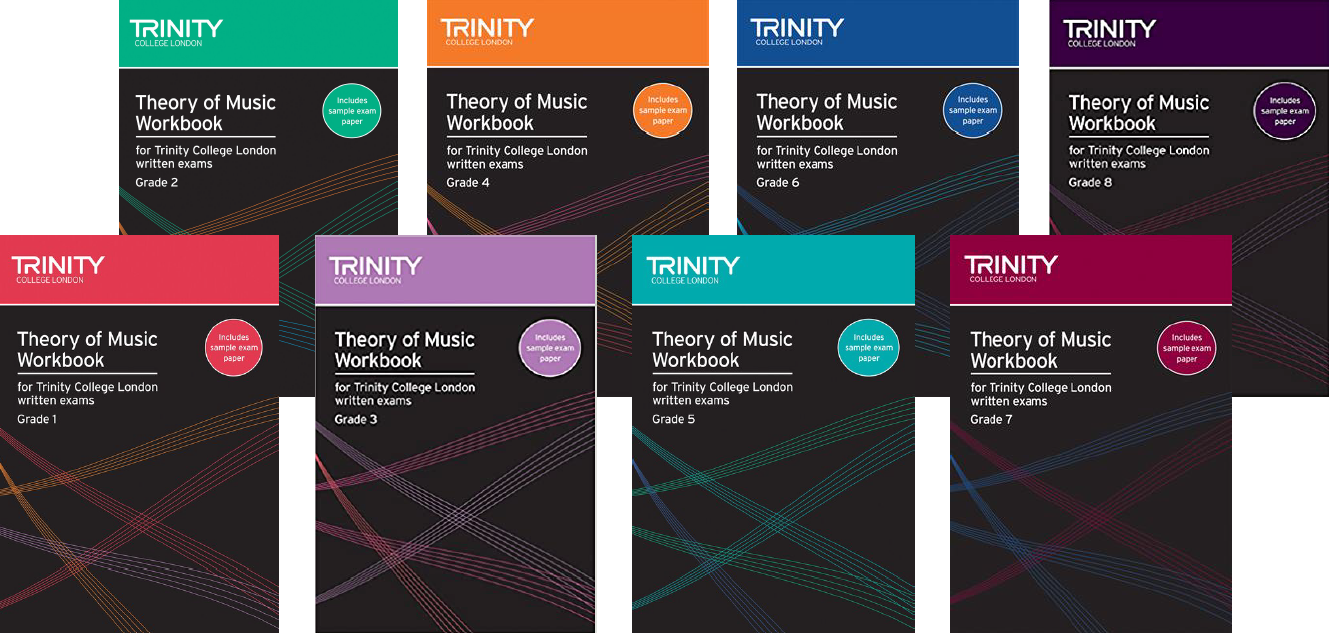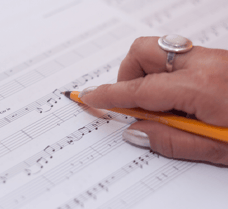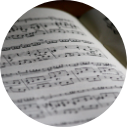
Trinity Theory – nurturing skills and understanding fundamental to musical appreciation and development
BY: Annabel Thomas
07 July 2021
Theory and harmony broadened my mind in music - Nina Simone
While often not the thing that many students are instinctively excited by, learning music theory is a fundamental part of any musicians’ journey, and at Trinity we are proud to have developed a sequenced, graded and pre-grade progression route for all musicians.
If you are reading this blog then I am sure you are either a music fan, teacher or student, and possibly are already sold on the value of theory. At a recent webinar exploring our theory syllabus, we asked attendees to share why they felt that studying music theory was of value, and some of their responses are below:
- Gain a better understanding of the music you are playing
- Understanding of how music works
- Essential to broaden musical knowledge and understanding
- Allows me to read and understand sheet music better
- It makes it easier to work with other musicians and composers
- Helps you to find a deeper meaning in the music
 We believe that music theory should be enjoyable and applicable to all musicians. Our performance grades have theoretical knowledge and understanding embedded into the pieces and supporting tests, which is why we don’t require any prerequisite theory grades for our higher performance grades. However, studying theory as a stand-alone option is a valid and important part of a musical journey, and can particularly help with composition, improvisation and other technical skills like sight-reading.
We believe that music theory should be enjoyable and applicable to all musicians. Our performance grades have theoretical knowledge and understanding embedded into the pieces and supporting tests, which is why we don’t require any prerequisite theory grades for our higher performance grades. However, studying theory as a stand-alone option is a valid and important part of a musical journey, and can particularly help with composition, improvisation and other technical skills like sight-reading.
The Trinity Approach
Our Theory of Music syllabus responds to modern teaching and learning styles with Theory of Music Workbooks presenting the study of musical theory in bright and practical formats, attractive to both the student and the teacher. Each grade is designed to support further study, building from the book before, however candidates can opt to start at any level. Wherever you start you will want to use all the workbooks as a learning resource and all the supplementary exercises on our website for further help.
In earlier grades you will study notation, keys and key signatures, chords, chord progressions, timing, pulse and note/rest groupings as well as simple transpositions from Grade 3. Our intermediate (4-5) and higher grades (6-8) develop these skills adding irregular time signatures, ornamentation and score analysis, pivot chords, modulation and advanced cadence structures, composition elements and more complicated transposition. 
Underpinning all our materials from grade 1 to grade 8 are the key themes of understanding written music, harmony, hand drawn notation, chords, keys and the circle of 5ths, analysis and writing your own music through composition exercises
All of our books are colour coded and clearly laid out, allowing students to progress through the syllabus with the support of a teacher and on their own. The bitesize nature of our Workbooks mean that theory becomes much less intimidating to the learner, and hopefully more enjoyable! At our higher grades candidates can also achieve UCAS points, and our Grade 5 theory is accepted by boards requiring this as a prerequisite for higher performance grades.
Exam structure
There are seven sections in Grades 1-5 that candidates are prepared for:1. Multiple Choice (general musical knowledge)
- Scales and arpeggios
- Observation and re-writing
- Transposition (from Grade 3)
- 4 part chords (from Grade 3)
- Composition (rhythmic only at grade 1 and melodic from grade 2)
- Analysis
For Grades 6-8, you will find five sections building from Grades 1-5:
1. Advanced general knowledge
2. Stylistic composition
3. Score writing
4. Harmonisation
5. Analysis
Our next Theory session will take place in November, with the closing date on the 20 September. You can find your local centre and how to make your booking via our online map.
Support resources
As well as our syllabus we have a wide range of resources to support teachers and learners:- Trinity Theory pages of the website
- Trinity Theory workbooks
- Our new Introducing Theory of Music publication
- Sample papers to download
- Past papers
- Theory Support Resources
Our recent webinar exploring our Theory syllabus can also be viewed on-demand, and we are looking to re-run this as well as provide further opportunities for live support in the near future.
To ensure that you are kept up to date with information on our Theory syllabus we suggest you sign up to our mailing list.
If you have any further questions about our Theory syllabus please get in touch.




Comments & Replies